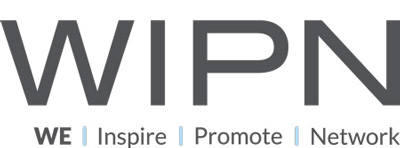By Cathy Stahl, Managing Director, Global Head of Marketing at PIMCO
Women are transforming the global economy. The financial services industry must evolve both to better serve women investors, and to assess the impact that women’s decisions have on markets worldwide – now and in the decades to come.
Women represent an increasing economic power in the U.S. and around the globe. American women account for 47% of the U.S. labor force and are responsible for starting 41% of new businesses.1, 2 And as business leaders, women make a difference: A 2018 McKinsey study found companies with the most gender-diverse executive teams were more likely to have above-average profitability than the least diverse companies by 21%.3
For the first time, American women have surpassed men in controlling private wealth, giving them decision-making power over approximately $14 trillion.4 On a larger scale, as of 2017, women held 30% of the world’s wealth (approximately $60 trillion), and estimates call for that amount to reach $72 trillion by 2020.2
Empowering women, building partnerships
But the financial industry has not been as quick to respond to this demographic shift as many of us would hope. Women’s perspectives are essential: There’s opportunity for greater gender diversity in industry leadership, on trade floors and in management roles. More women could represent and make decisions about the trillions of dollars in client – including pensions – assets our industry manages daily.
Like many investment management firms, PIMCO advocates for gender equality in our industry and across the broader economy, partnering with influential organizations such as WiPN, Girls Who Invest and The 30% Club to bring more women into portfolio management roles. Our CEO, Manny Roman, also recently signed the UN’s Women’s Empowerment Principles, underscoring PIMCO’s commitment to equality around the world.
The pursuit of wealth-life balance
With women directing increasing wealth, it is important for the individuals and the firms that will manage their investments to understand women’s objectives, challenges and expectations. We recently commissioned a large-scale survey on women’s views of investing, including their goals, performance expectations and investment philosophy. We learned that many women see wealth as one component of a balanced, holistic life: the pursuit of wealth, alone, is not enough.
We began our research by hosting small discussion groups, encouraging the participants to share their unvarnished impressions of investing and retirement. These focus groups highlighted how the financial industry’s traditional framework for helping individuals manage their assets isn’t working for many women.
Specifically, we heard this feedback:
- The financial industry is set up to be complicated and uncomfortable for women.
- Women want power and control over their finances, but they are happy to delegate to quality partners – advisors and managers who share their values and employ a transparent, straightforward approach.
- Advisors assume all investors have a long-term investment horizon, but women’s lives and investment goals are more complicated and immediate.
- Performance is more qualitative than quantitative.
Women on retirement investing
We also learned that women believe investing is an important part of retirement planning, even if they are not acting on it. Ninety percent of the women we surveyed are optimistic about investing’s potential to create a steady source of income during retirement, but only 14% are maxing out their retirement accounts – and 57% rarely think about the investments they select for their retirement portfolio. The financial services industry can play an important role in helping women reconcile this situation.
Transforming insights into actions
These initial findings confirmed for us that women are a catalyst of change and opportunity – redefining the rules and setting new expectations for our industry. While the groundswell of focus across the investment management industry to better serve this broad set of engaged investors is gratifying, it also underscores the importance of the industry flexing to meet women, instead of the other way around.
And the great news is that the industry has an opportunity to respond – and empower women to find wealth-life balance. The survey we launched following these meetings was designed to gather specific data around how financial services and asset management needs to evolve to attract, retain and better serve women investors, including specific guidance on strategies and product solutions for retirement investing.
In the months to come, we will continue to share further insights, tools and resources to educate ourselves and our industry on how to take action and better serve women investors. It’s an exciting journey.

Ms. Stahl is a managing director in the Newport Beach office and global head of marketing at PIMCO. She oversees the brand, creative, content, channel and digital marketing teams as well as PIMCO’s corporate responsibility platform. She is also a member of the firm’s Executive Committee. Prior to joining PIMCO in 2011, Ms. Stahl was a managing director and head of marketing at Allianz Global Investors Distributors. Before this, Ms. Stahl held roles at Tiller, an advocacy marketing agency where she led research-based programs for financial services clients, and at OppenheimerFunds, managing business development and projects for the wealth management group and corporate value-added marketing programs. Ms. Stahl serves as a board member of The PIMCO Foundation, Boys & Girls Clubs of Central Orange Coast and St. Margaret’s Episcopal School. She is also a member of the PIMCO Women Steering Committee, contributing to the firm’s global diversity initiatives. She holds an undergraduate degree from Saint Mary’s College in Notre Dame, Indiana, and is co-author of “Twin Set,” a nonfiction book about parenting twins published by Random House in July 2008.
1 Source: Pew Research Center study on gender gains and gaps, 15 March 2018
2 Source: Boston Consulting Group Global Wealth Market Database 2017. 2017 U.S. wealth = $86.1 trillion (40% of global personal growth), 55% of which is investable assets. 2017 global wealth is $201.9 trillion, 60% investable assets.
3 Vivian Hunt, Sara Prince, Sundiatu Dixon-Fyle and Lareina Yee, “Delivering through Diversity,” McKinsey & Company, January 2018
4 Source: Cerulli Associates


